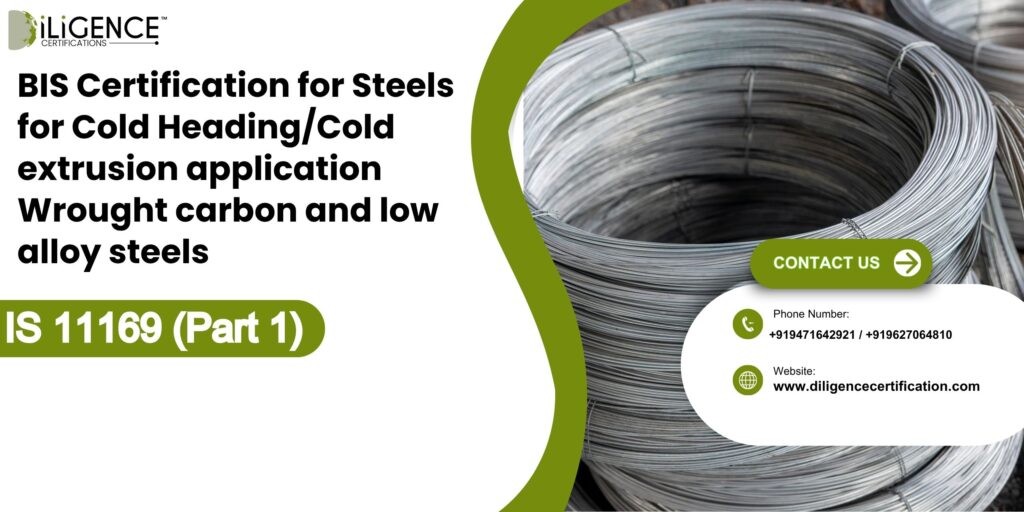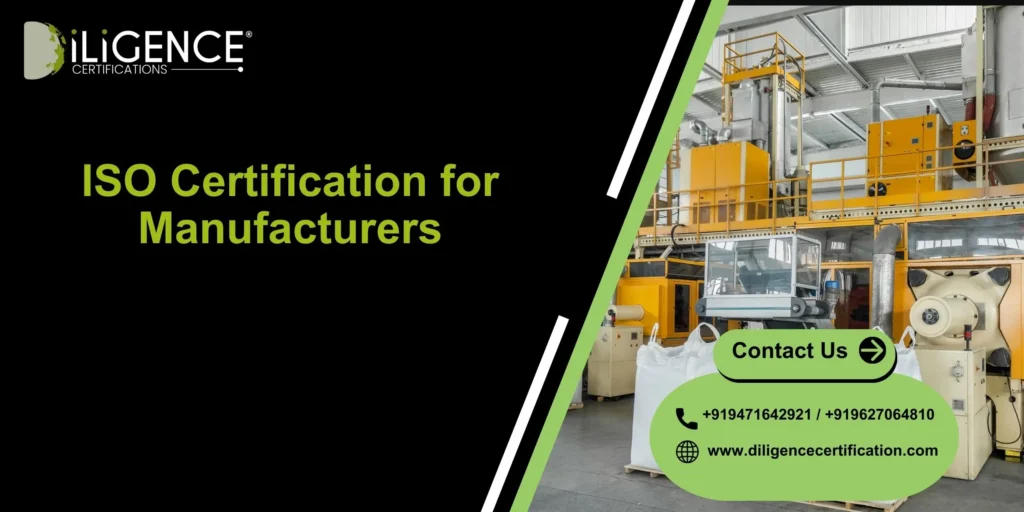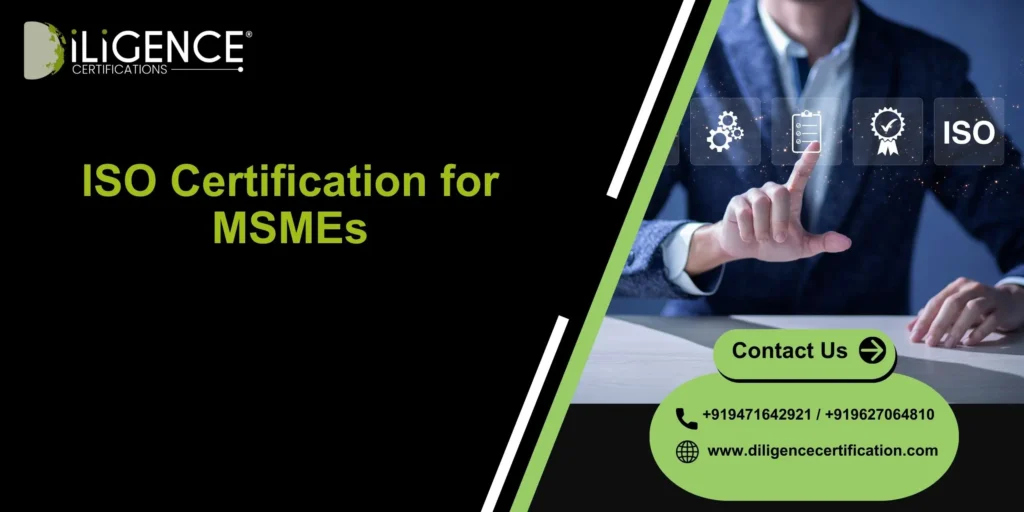- BIS Certification under IS 11169 ensures reliable steel quality for cold heading and extrusion.
- It controls chemistry, microstructure, inclusions, strength and surface finish.
- Mills must undergo audits, in-house testing and BIS lab verification.
- Automotive, defence and engineering industries depend on certified Steels for Cold.
- The licence reduces rejections and improves acceptance with major OEMs.
Introduction
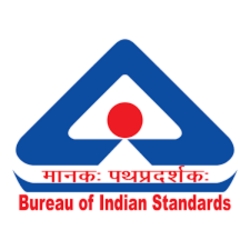
A fastener manufacturer in Pune experienced a situation where their metal pieces were cracking during cold-heading although the steel looked normal. Eventually, it turned out that the source of the problem was inconsistent chemistry in a non-certified batch. Their supplier does not have a BIS Certification for Steels for Cold Heading/Cold extrusion application, Wrought carbon and low alloy steels under IS 11169 (Part 1): 1984, which resulted in unstable material behaviour. Cold-forming is a very demanding process that requires the steel to perform as expected, and even small deviations can be enough to stop the whole production line. Bureau of Indian Standards
What is IS 11169 (Part 1): 1984?
IS 11169 (Part 1): 1984 is an Indian Standard that details the specifications for wrought carbon and low alloy steels that are used for cold heading and cold extrusion are the main operations. Such steels should be able to go through a severe deformation at room temperature without any cracks, thus the standard sets very stringent control over chemistry, microstructure, mechanical properties and surface quality.
Key points:

- Define chemical composition of the carbon and low alloy steel grades.
- Define the mechanical properties required for cold forming, e.g. ductility and strength.
- It has the requirements for inclusion control, grain structure and surface cleanliness.
- It also specifies the testing methods for tensile strength, hardness, microstructure and dimensions. ISI MARK
- It is aimed at ensuring that metal blanks behave consistently during cold heading, forging and extrusion operations.
Why is BIS Certification Mandatory
BIS certification is a must-have by law since the government has categorized a number of metal products like cold-heading and cold-extrusion grades as quality-critical materials. These are metals that have been extensively reshaped at room temperature and thus even a minor change in the composition or cleanliness may lead to cracking, damage of tools or safety failures. Hence, a compulsory certification is the way to ensure that every manufacturer is following the same technical standard and that the final product is safe for use in different sectors.
Key reasons:
- It is the chief instrument for uniform quality assurance among all steel producers in India.
- It is the initial line of security for the manufacturers that are next in the chain thus, totally removing the risk of material defects during cold forming.
- Removal of the risk of the use of unsafe or sub-standard steel in the automotive, defence and public-sector supply chains.
- Helps buyers verify authenticity through the BIS Standard Mark.
- Supports export readiness, as many OEMs require certified raw material.
Importance and Benefits of BIS Certification
| Importance | Benefits |
| Ensures steel meets IS 11169 requirements for cold forming | Reduces cracking, rejections and production delays |
| Protects OEMs and manufacturers from inconsistent material quality | Improves acceptance with automotive, defence and export clients |
| Creates a uniform quality benchmark across steel mills | Builds trust and credibility in supply chains |
| Prevents sub-standard material from entering critical applications | Supports long-term compliance and audit readiness |
| Mandatory for several regulated steel categories | Allows use of the BIS Standard Mark for market access |
Step-by-Step Process of BIS Certification

Step1:Documentation
- Collect required business and product documents
- Ensure compliance with BIS standards
- Prepare technical files and product details
- Verify authenticity of all submitted records
Step2:Product Testing
- Send product samples to a BIS-recognized lab
- Conduct tests as per relevant Indian Standards (IS)
- Obtain an official test report
- Fix issues if the product fails and retest
Step3:Application Submission
- Fill out the BIS registration form online
- Upload documents and test reports
- Pay the required government fees
- Track application status on the BIS portal
Step4:Scrutiny and Inspection
- BIS reviews documents and test reports
- Factory inspection may be conducted (if applicable)
- Clarifications or additional documents may be requested
- Compliance is verified before approval
Step5:Grant of License
- BIS issues the registration certificate
- Unique R-number or license number is provided
- Manufacturer can affix the BIS mark on products
- Renewal required as per BIS validity timeline
Documents Required for BIS Certification
| Category | Documents Required |
| Business Documents | Business license/registration, ISO certificate, organizational details |
| Manufacturer Details | Factory layout, process flow chart, machinery list, production details |
| Product Documents | Product specifications, component list, user manual, model details |
| Testing Documents | Test report from BIS-recognized lab, sample details, test request form |
| Legal & Compliance | Authorization letter, brand ownership proof, trademark certificate (if any) |
| Import/Foreign Manufacturer (If applicable) | AIR (Authorized Indian Representative) details, contract agreement, overseas manufacturer documents |
Timelines, Costs, Validity & Renewal
- Timelines:Usually 20–30 days; testing takes 7–15 days.
- Costs:Govt + testing fees vary by product; extra charges possible.
- Validity:Typically valid for 2 years.
- Renewal:Done before expiry; needs updated docs/tests; extends up to 5 years.
Why Choose Diligence Certifications
- Expert team with strong BIS and regulatory knowledge
- Fast, streamlined processing to reduce approval delays
- Accurate documentation and testing coordination
- Transparent guidance with clear communication
- High success rate and complete end-to-end support
Conclusion
Securing BIS Certification for Steels for Cold Heading/Cold extrusion application Wrought carbon and low alloy steels under IS 11169 (Part 1): 1984 ensures consistent performance during cold forming and strengthens acceptance with key OEMs. It reduces rejection risks and builds trust in supply chains.If your plant needs help with documentation or audit readiness, Diligence Certifications can assist in completing the BIS process smoothly.
Frequently Ask Questions
What is IS 11169 (Part 1): 1984?
This is an Indian Standard that defines the criteria for carbon and low alloy steel products for wrought that are used in spinning and extrusion of cold products.
Why is BIS Certification mandatory for cold-heading steels?
As the steels are a quality-critical part of the process, any fluctuation may result in cracking or the break of the tool during cold forming. Obtaining certification is a way of ensuring the same level of quality all along.
What industries are the main users of IS 11169-compliant steel?
Automotive fasteners, defence hardware, engineering components, machinery parts and export-oriented suppliers are the main users of certified material.
What kind of tests are required for IS 11169 certification?
Tests related to the chemical composition, tensile strength, hardness, inclusion ratings, microstructure, and dimensional accuracy.
How long is the BIS certification procedure?
It usually takes about 20–30 days, and the duration is affected by the times set for testing, document verification, and plant inspection.
Are manufacturers required to maintain an in-house testing laboratory?
Certainly, pivotal tests must be performed on-site, and BIS might inspect lab facilities, calibration standards, and testing operations.
Factory inspections by BIS-are they real?
Yes, BIS officials perform on-site visits to check the production, inspection facilities, quality systems, and sampling practices of the factory.
Which documents are required for getting the certificate?
Along with a business registration, factory layout, process flow, machinery list, calibration records, test reports, and compliance documents are necessary.
For how long does the BIS license stay valid?
Generally, it is valid for two years and can be renewed for up to five years provided updated documents and test reports are submitted.
Are Diligence Certifications able to facilitate the BIS process?
They certainly do, as they provide the full compliance support from start to finish, including documentation, testing coordination, audit preparation, and licence approval.






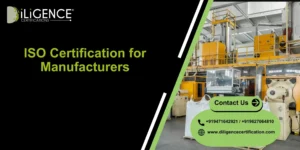
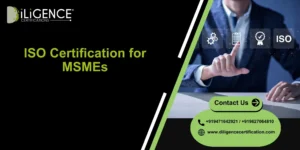
 BIS Certification
BIS Certification
 CDSCO
CDSCO
 CPCB
CPCB
 LMPC
LMPC
 WPC Approval
WPC Approval
 Global Approvals
Global Approvals
 TEC
TEC
 ARAI
ARAI
 BEE
BEE
 ISO Certification
ISO Certification
 DGCA Certification
DGCA Certification
 NOC For Steel
NOC For Steel



















 Business Registration
Business Registration















 Legal Services
Legal Services
 Trademark Registration
Trademark Registration
 Copyright Registration
Copyright Registration
 Patent Registration
Patent Registration
